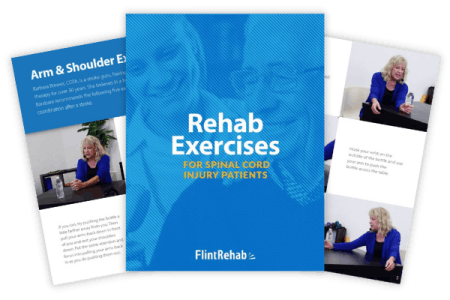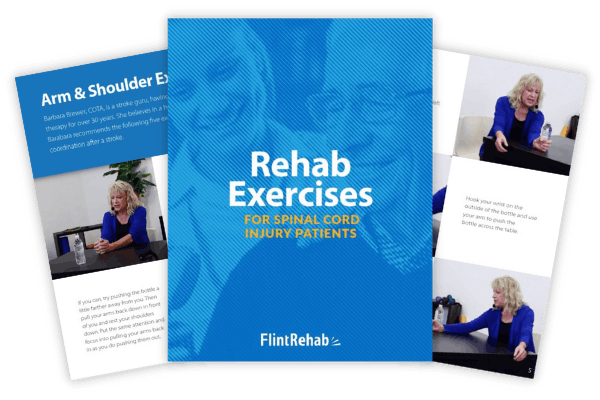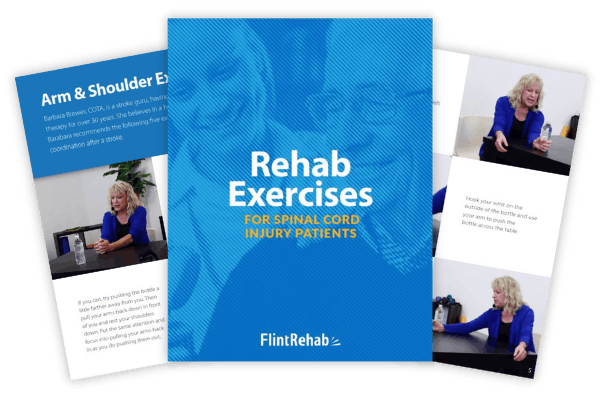No products in the cart.
No products in the cart.
No products in the cart.
No products in the cart.
Home » Neurological Recovery Blog » Spinal Cord Injury » Can a Spinal Cord Injury Cause Memory Loss? The Correlation Between SCI and Cognitive Function
Last updated on May 6, 2022

Survivors may experience a variety of cognitive effects after sustaining a spinal cord injury (SCI), including fatigue and impaired memory. However, this begs the question, can a spinal cord injury cause memory loss?
The answer is no, at least not directly. Cognitive function is only affected by a spinal cord injury with a co-occurring traumatic brain injury (TBI).
This article will explore the connection between SCI, TBI, and memory. It will also discuss management techniques you can use to cope with memory loss.
The simple answer is no. Spinal cord injury will affect motor and sensory functions relayed via the spinal cord, but it will not cause memory loss because this ability is housed in the brain. Memory is a cognitive function and cognitive functions are regulated by the brain, not the spinal cord.
The spinal cord connects the brain to the rest of the body. It serves as the communication pathway between the two and is mostly responsible for movement and sensation. This is why the primary effects of a spinal cord injury affect movement and sensation.
However, some complications of spinal cord injury can also affect cognitive functions. For example, if a survivor experiences fatigue or pain after spinal cord injury, that may affect cognitive function and result in challenges with memory. The link is not direct, but these factors can contribute to memory loss after spinal cord injury.
It’s also important to look at the nature of the accident that caused the spinal cord injury. Sometimes, a spinal cord injury occurs alongside a traumatic brain injury, which can affect cognitive functions such as memory. In fact, studies show that about 59% of spinal cord injury survivors simultaneously experience a TBI. For example, in a car accident, hyperextending your neck is categorized as a spinal cord injury, but hitting your head on the car window is a traumatic brain injury.
Ultimately, a spinal cord injury alone cannot cause memory loss, but other complications or a co-occuring TBI can contribute. Fortunately, there are ways to help manage your memory and improve cognitive function.

When a spinal cord injury and traumatic brain injury occur at the same time, the severity of both injuries will impact the secondary effects the survivor may experience.
For instance, after a TBI some survivors are able to maintain long-term memory but struggle with short-term memory. This means it can be less challenging to recall things from the past, but more difficult to retain new information. This occurs when pathways in the brain have been affected by an injury.
Fortunately, cognitive functions can be improved through neuroplasticity, the brain’s ability to rewire itself. Neuroplasticity is best activated through high repetition of activities. For example, the more a skill is practiced, the more the brain recognizes its importance and strengthens the existing pathways for it and/or creates new ones. Therefore, it’s important to practice as much as you can to promote recovery. This is true for memory as well. Reviewing names or numbers will improve your ability to recall them.
Working with an occupational and/or speech therapist is extremely helpful. They can provide a cognitive rehabilitation plan suitable for your ability level. Additionally, there are various cognitive exercises you can do at home in between therapy sessions to stay engaged and activate neuroplasticity.
Particularly to address memory after spinal cord injury, you can try:
To keep yourself motivated and engaged in consistent therapy, you can use the CT Speech and Cognitive Therapy App. This app provides access to over 100,000+ cognitive rehabilitation exercises to help improve memory and other skills.
Cognitive rehabilitation is particularly helpful if memory challenges are the result of a TBI. If you have not sustained a TBI but still struggle with memory after spinal cord injury, talk to your doctor or therapist to see if there are underlying issues. For example, if you struggle with pain or fatigue, your doctor might be able to help, and that can help improve overall cognitive function including memory.
Last but not least, be patient with yourself. The chances of improving memory increase with time and consistent practice.
Spinal cord injury is complex and multifaceted. It affects movement and sensation depending on the level of injury. While SCI can directly affect movement and sensation, it does not cause memory loss alone.
Instead, only a spinal cord injury with a co-occurring traumatic brain injury can cause a variety of cognitive difficulties including impaired memory. Fortunately, memory and other cognitive functions can be improved through neuroplasticity.
We hope this information helps you understand the link between spinal cord injury and memory loss, and encourages you to engage in cognitive therapy.

Get instant access to our free exercise ebook for SCI survivors. If you liked this post, you’ll LOVE our emails and ebook.
Each exercise features pictures of a licensed therapist to help guide you. You’ll also receive our popular recovery emails with SCI survivor stories and other useful tips — you can opt out anytime.
We will never sell your email address, and we never spam.


Flint Rehab is the leading global provider of gamified neurorehab tools. Check out our bestselling tool by clicking the button below:
Depending on the severity of your spinal cord injury, there may be hope for improved mobility. Consistent at-home therapy is key to making this happen.
That’s why Flint Rehab created FitMi, a motion-sensing, gamified home recovery tool designed for neurological injury like SCI.
Here’s what others have said about it:
“I purchased this wonderful equipment for the use of spasticity for my right hand. Initially I wasn’t sure if it would work because of the various treatments I tried and also many physiotherapists who tried their level best, but didn’t achieve any positive results.
However after trying FitMi, I could feel that slowly and steadily I am improving. It’s really a great device that minutely takes care of each and every muscle of your affected body part. The biggest plus point is, you can use this device anywhere, anytime with precise exercises that you need and also saves your money and time spent on your physiotherapist.“
— Chandrakiran
FitMi works by encouraging you to practice rehab exercises with high repetition. On average, survivors complete hundreds of repetitions per half hour session.
“Massed practice” like this helps stimulate and rewire the nervous system. While you can achieve massed practice with a written sheet of exercises, it can be tough to stick with it consistently — and consistency is key to recovery.
FitMi helps transform rehab exercises into an engaging, interactive experience. The yellow and blue “pucks” track your movement and provide feedback. All of this comes together for a motivating home therapy program.
A survivor named Tom put it perfectly:
“I believe this device will help me concentrate on making the repetitive actions needed to obtain further movement range in my wrist and hand and arm and therefore rating it with five stars. My occupational therapist recommended to give this a try. I have been using FitMi for just a few weeks. I feel more at ease in flexing.”
If you’d like to learn more about FitMi, click the button below:

Do you have this 15 pages PDF of SCI rehab exercises?
Get a free copy of our ebook Rehab Exercises for Spinal Cord Injury Recovery. Click here to get instant access.
Grab a free rehab exercise ebook!
Sign up to receive a free PDF ebook with recovery exercises for stroke, traumatic brain injury, or spinal cord injury below: